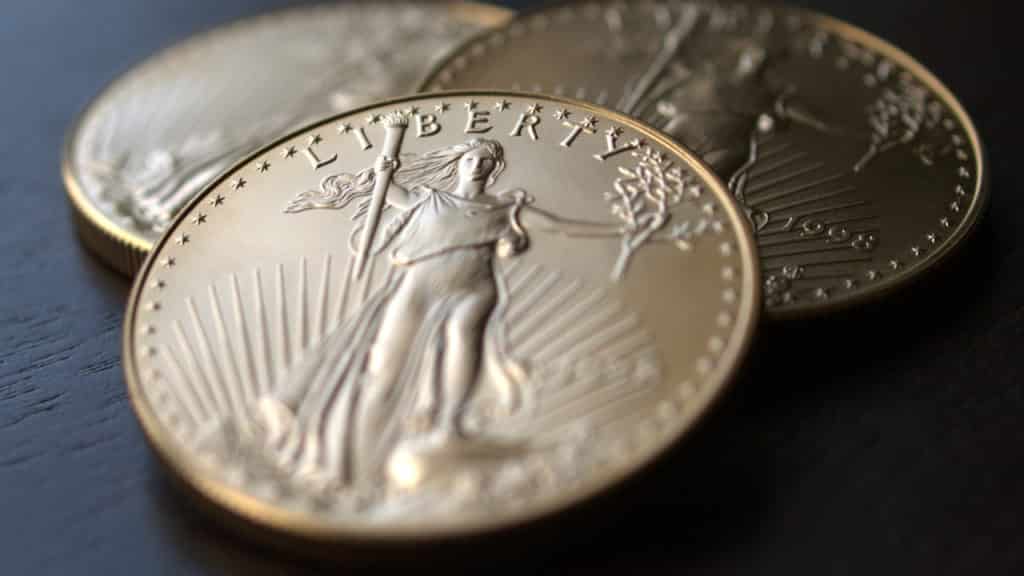
Small Victories for Sound Money: More States Repealing Sales Tax on Gold and Silver
Assessing a state sales tax on the purchase of gold and silver is becoming an outmoded, indeed outrageous, practice – but a small number of U.S. states still engage in it. That number is shrinking as more states repeal those onerous taxes.
Several of the remaining seven states that tax all precious metals purchases are presently considering enacting their own exemptions, and just this week a Mississippi law repealing that state’s sales tax on gold and silver went into effect.
A culmination of a four-year campaign by Money Metals Exchange and the Sound Money Defense League, Mississippi Governor Tate Reeves signed Senate Bill 2862 in April and, as of July 1, all purchases of gold, silver, platinum, and palladium coins, bars, and rounds are fully exempt from sales tax in the Magnolia State.
Mississippi follows Virginia (2022), Tennessee (2022), Ohio (2021), and Arkansas (2021). Meanwhile, New Jersey and Wisconsin could be the next two states to remove sales taxes from the monetary metals.
In fact, members of the New Jersey assembly unanimously voted last week to pass A5294, sending the bill to the state senate for concurrence. And Wisconsin is expected to hold hearings on an exemption bill in September.
Hawaii, Kentucky, New Mexico, Vermont, Maine, New Jersey, and Wisconsin are the only remaining full sales tax states – and none of them border each other. That means these states are surrounded by tax-exempt states, further increasing the pressure to act.
That’s certainly one of the reasons Mississippi passed its sales tax exemption this year. It’s embarrassing to the politicians when they see that citizens are taking their business to other states.
Among the other strong arguments to end this tax:
- Gold and silver are money, per the U.S. Constitution. It makes no sense to tax money.
- Stocks, bonds, and ETFs don’t have sales taxes, so why should those who purchase gold and silver to save money or hedge against inflation be treated differently?
- Gold and silver are not consumed. Instead, they are held for resale or exchange – and sales taxes are generally targeting the final consumer of goods, exempting resellers.
- Coin conventions avoid – and coin shops struggle to succeed in – the sales tax states, forcing economic activity, and businesses themselves, out of state.
Although this year’s Wisconsin and New Jersey bills are still moving forward, big government politicians in Maine, Kentucky, and Vermont have defeated such bills (for 2023, at least).
Meanwhile, tax-hungry bureaucrats in California – a “threshold state” – bumped up the required gold or silver purchase size for a sales tax exemption from $1,500 to $2,000, exploiting an inflation adjustment mechanism in state regulations.
This threshold scheme – where the smaller purchasers get taxed, while those who make larger buys do not – is particularly unjust.
Aside from California, New York, Connecticut, Maryland, Massachusetts, and Florida penalize small-time savers who make precious metals purchases below each state’s arbitrarily chosen threshold.
As they’ve traversed the country, Money Metals and Sound Money Defense League staff have uncovered only limited opposition to sales tax exemption bills. There is no major constituency that engages in these battles on the other side.
Not surprisingly, though, some of these bills can get caught up in partisan squabbles or other political gamesmanship.
In a galling display of petty politics, for example, Democrat leaders in the Maine House of Representatives and Senate called for a revote last month after each chamber initially passed the sales tax exemption bill.
After some 11th-hour arm-twisting, two key “yes” votes flipped to “no,” killing the measure for this year’s legislative session.
This sound money bill in Maine was perceived as a Republican proposal. And Democrats, who hold the majority in both chambers, wanted to prove they still had control of the state legislature in a year when the GOP had essentially been shut out of any policy victories. Public be damned.
It’s downright crazy for politicians to block access to gold and silver lifeboats in the throes of a dangerous financial storm.
Yet, notwithstanding these challenges, we are fortunate to be making real progress for sound money, particularly at the state level – and particularly when it comes to eliminating sales taxes on gold and silver.
There are also other sound money victories to report involving other types of bills introduced this year, which we will summarize in a later article.
For now, though, we want to give a special thanks to the thousands of Money Metals customers who, at our prompting, have contacted their legislators in literally dozens of states. Grassroots contact works, and the momentum is building.
Stefan Gleason
Stefan Gleason is President of the Sound Money Defense League, a national grassroots lobbying organization working to restore gold & silver to their historical role as America’s constitutional money. He also leads Money Metals Exchange, a national precious metals dealer with over 50,000 customers. Gleason has frequently appeared on national television networks such as CNN, FoxNews, & CNBC, & his writings have appeared in hundreds of publications such as the Wall Street Journal, TheStreet.com, Seeking Alpha, Detroit News, Washington Times, & National Review.